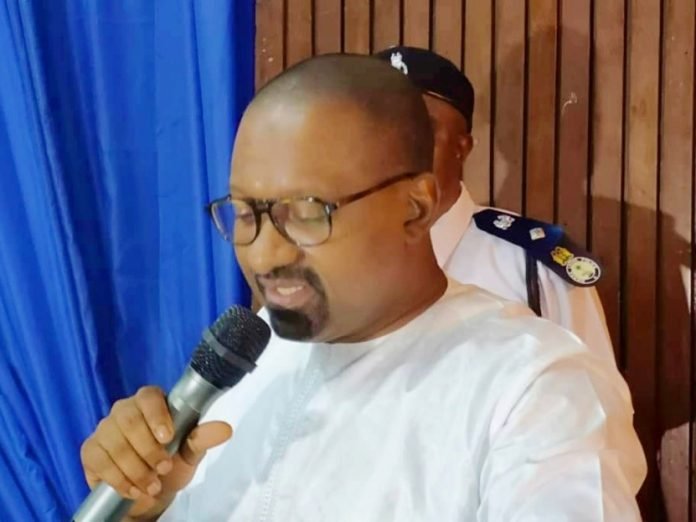| By Sam Pratt Sierra Leone’s Vice President, Dr. Mohamed Juldeh Jalloh has pledged the country’s commitment to achieving the ambitious goals set out by the West Africa Monetary Zone. He added that they have not only reviewed some weak policies but are working in direct compliance with all financial policies and other relevant regulations to combat corruption. The Vice President was speaking as host of the 2019 statutory meeting of WAMA, WAMI and WAIFEM which brings together Nigeria, Ghana, Liberia, Gambia and Guinea to discuss a firm economic foundation for West Africa. Also speaking was the Finance Minister, Jacob Jusu Saffa, who catalogued the successes made almost two years ago by the New Direction administration, under the distinctive leadership of President Julius Maada Bio. In a reassuring mood, Mr. Saffa, a World Bank trained Development Economist, told his audience that, “From now, moving forward we would have a stable economy.” It could be recalled that the recent arrears verified by the Auditor General, in collaboration with the Ministry of Finance and the International Monetary Fund owed to domestic contractors and inherited from the previous administration in April 2018 amounted to Le. 3.2 trillion (or about USS$ 340 Million); which accrued in 2016 and 2017. Additionally, external debt is estimated at USS$ 1.6 billion and domestic debt at USS$ 650 Million. This brings total liability of Government to an estimated USS$ 2.59 billion Dollars. The Finance Minister informed stakeholders of the West Africa Monetary Zone (WAMZ) that the high double-digit inflation has progressively declined at the end of 2019. He also said that apart from the successful domestic revenue mobilization drive, a lot of tangible reforms have yielded dividend to the admiration of IMF, World Bank as well as other international donors by giving credit to his leadership as the country’s financial engineer. As a Government, he said, they were grateful to host the 2019 statutory meeting of WAMA, WAMI and WAIFEM which brings together Nigeria, Ghana, Liberia, Gambia and Guinea to discuss a firm economic foundation for West Africa. He reiterated that Sierra Leone satisfied 3 out of 4 primary convergence criteria: fiscal deficit, central bank financing of fiscal deficit and gross external reserves, adding that the real Gross Domestic Product for Sierra Leone increased to 5.1 in 2019 from 3.5 % in 2018. According to him, it is expected to drop to single-digit by 2021 Speaker after speaker demonstrated optimism and a strong simmer of hope for a bustling economy in their respective countries. |
In another development, the Ministry of Finance on Thursday 13th February, 2020 signed a Memorandum of Understanding with the Mano River Union on the implementation of the post Ebola recovery social investment fund project worth USD 12.4 million.
In the signing ceremony, the Country Program Officer of Africa Development Bank (AfDB), Madam Felicitan Atanga, said the signing of the MOU is one of the conditions of the first disbursement and the other outstanding condition is the approval of the Chairman of the Steering Committee.
She said the project will alleviate the suffering and improve the livelihood of the Ebola Survivors, noting that they are happy that the project is back on the table.
According to the Minister of Finance Jacob Jusu Saffa, sometime last year when the Ministry was reviewing the different projects in the Country, they found out that this project was almost dead since 2016 without attention.
He urged all parties concerned in the implementation of the project to treat the project as a Government of Sierra Leone Project rather than as an AfDB project. He said the Ministries of Health in respective countries will conduct psycho-social counselling, infection prevention, health promotion activities, community outreach and capacity building of training institutions.
The project beneficiaries include the populations of Guinea, Liberia, and Sierra Leone along the borders of the three countries, targeting: (i) community members including youths, women, men, children, people with disabilities and the elderly, (ii) health workers, (iii) community volunteers and social protection officers.
The project intends to provide benefit to 5,000 Ebola survivors, 2000 orphans, 75 community groups, 300 cross-border traders, 450 social workers and 6,000 micro and small enterprises across the three affected countries.




